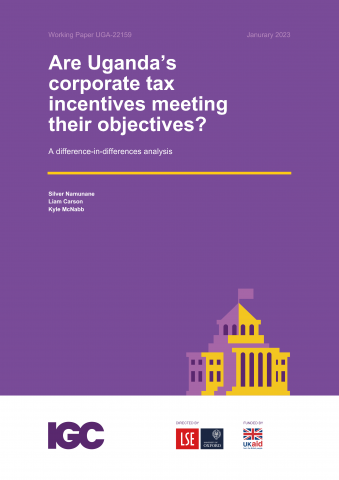-
Namunane et al Working paper January 2023
PDF document • 1.04 MB
We consider the case of the 10-year CIT exemption offered under section 21(1)(af) of the Ugandan Income Tax Act (ITA). Using a difference-in-differences methodology, we find that whilst beneficiary firms invested, on average, more than non-beneficiaries, there are no positive and robust effects on the other outcomes of interest. The finding on investment confirms that beneficiaries have made up-front investments in order to qualify for the exemption. We suggest that the lack of positive effects on other outcomes can be explained by the fact that (i) it is still early in the life cycle of many of the qualifying investments, or (ii), that the exemptions are simply redundant and do not encourage firms to produce or employ beyond what they otherwise would. Such incentives should provide a net benefit to the economy; it is not clear that this is currently the case.



